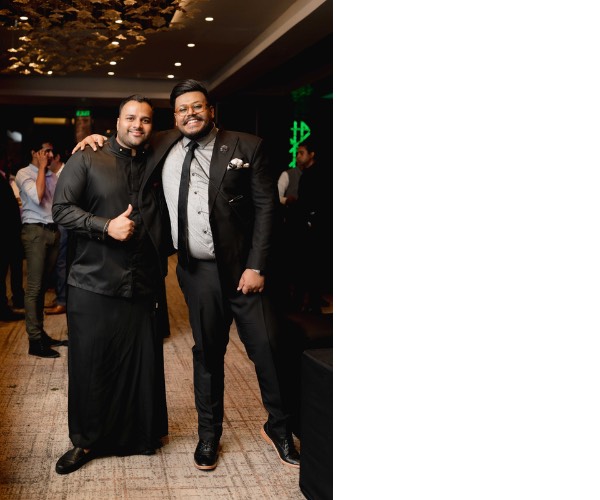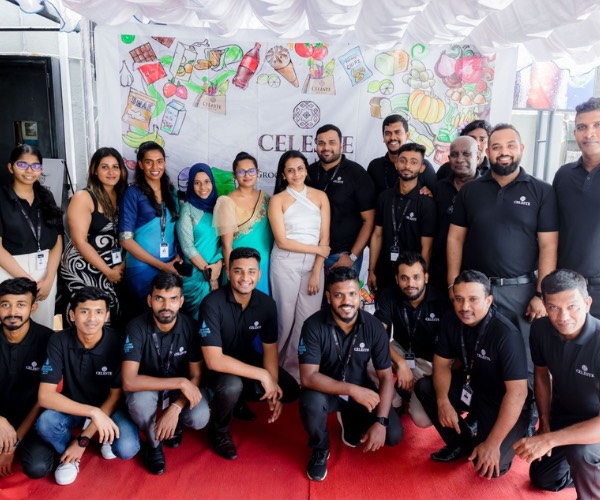
Jun 05 2024.
views 282Today on the Buzz, I speak to a young entrepreneur who took up the most challenging time in our country to make a new place in the world of consumer demand. Before COVID-19 hit, we were so sceptical of using cards and making transactions online although some of us were in it we were not so convinced, but during the wave, we had no choice but to agree on using cashless transactions. A brand that speaks of a success story because of a global pandemic is Celeste Daily. As a celebration of successful years, I speak to the founder, Janik on his journey thus far.

1. Do you feel customers are more inclined to use their cards and pay online?
Yes, customers are increasingly inclined to use their cards and pay online. In Colombo, we've seen a significant shift towards cashless methods due to their convenience. Online payments have grown by over 40% in the past few years, showing that cashless is indeed the way to go.
2. What would you say has been the biggest challenge after COVID-19? The mindset of the people changed including their lifestyle what have you learned from this shift and how were you to adopt it?
Post-COVID, the biggest challenge has been maintaining consistency. However, the shift in mindset has positively impacted our online retail business. People who initially resisted online shopping discovered its convenience and gradually embraced it. The rise of remote and hybrid work models also supports this trend, allowing customers to stay home and order online. Adapting to these changes has reinforced the importance of providing reliable, consistent service to meet evolving customer expectations.
3. In 2018 startups were an encouraged commodity, today lot of youngsters are holding back from taking this move. What would you tell them?
I would tell them that starting a business today can seem daunting, but challenges create opportunities. Focus on solving real problems, stay adaptable, leverage technology, and prioritize your customers. Remember, every big company started small. Believe in your vision and take that first step. There might be other shortcuts available but those are not sustainable or consistent nothing can substitute smart and hard work.
4. You have signed with some big brands in the past four years in comparison as this is a younger and a smaller brand what do you think?
These multinational organizations chose to partner with Celeste because we are a committed, dedicated, and strategic young brand. We demonstrated innovation, adaptability, and the ability to deliver quick results. Our reliability and strong performance earned their trust and confidence. I strongly believe this along with a great relationship has been the key.
5. “End of the day it’s just grocery” people may have said this line to you. How did you make that sexy and glamorous?
We approached groceries with a fresh perspective, thanks to our young, dynamic, and passionate team. We refused to see it as a boring business, infusing it with fun, empathy, and creativity. We focused on the human aspect, ensuring our service was cool, sexy, and glamorous while serving real people with genuine care.

6. What were some challenges that you saw in 2020 that you feel have changed in the year 2024 in terms of consumers' mindset, etc?
In 2020, we faced the challenge of customers preferring to touch and feel groceries, especially fresh produce. The pandemic forced them to try online ordering, and we earned their trust by providing top-quality products and services. We were always just a call or text away to make things right if needed. Today, customers have evolved, trusting online shopping and expecting faster deliveries, sometimes within 30 minutes. We've adapted to meet these changing expectations, ensuring our team remembers we're serving real people with real needs.
7. In this fast-paced, quick-commerce business for delivery in terms of food or grocery what would you say in terms of a gap that you still see that could be a great business opportunity if somebody wants to come in?
There's a significant opportunity for a delivery partner provider with a fleet of riders on bikes, tuk-tuks, and small cars, similar to the UAE model. This would allow aggregators like Uber Eats and PickMe to focus on their core business instead of managing individual riders. Currently, there's a shortage of delivery riders, especially during holidays and rainy days, due to over-reliance on bikes. A mixed fleet offering would ensure reliable service regardless of weather conditions and create more opportunities for current delivery partners.
8. I have seen your team and you making great initiatives in keeping the delivery team or the drivers comfortable and well rewarded, Tell me about what initiated this kind of practice and what would you tell those who don’t have this empathy towards them.
My team and I have always closely associated with our delivery partners, understanding their hardships and challenges. They work long hours in extreme heat, heavy rain, and sometimes both on the same day. They often lack access to basic needs like rest areas, places to freshen up, and facilities for female riders to change sanitary napkins. Many live away from Colombo and need support when they are in the city.
We recognise these challenges and have implemented initiatives to support them. Celeste was built to create jobs and provide essential services during the pandemic, so it's natural for us to care deeply about our delivery partners. They are crucial stakeholders in our business. For those lacking empathy, I urge you to understand and address the real human needs of your team. A happy, supported team both internally and externally is essential for a successful business.
0 Comments